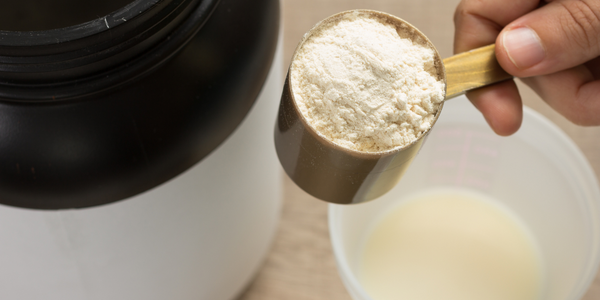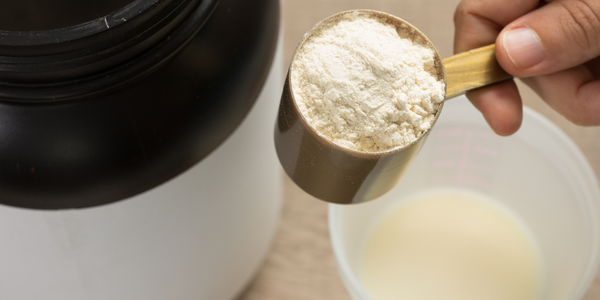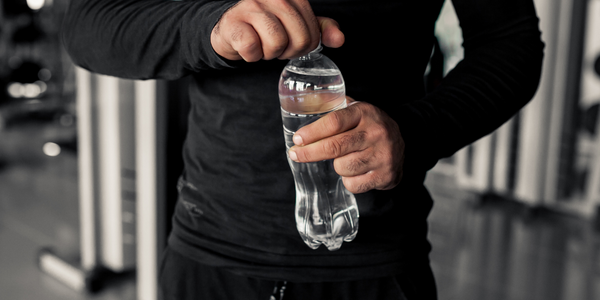Creatine is one of the most well-researched and widely used supplements in the fitness and sports industry. While it is known for enhancing strength, muscle growth, and recovery, there is often confusion about how it affects hydration levels. Some claim that creatine causes dehydration, while others believe it improves hydration and muscle function. This blog will break down the relationship between creatine and hydration, address common concerns, and provide practical hydration tips for those using creatine.
What is Creatine?
Creatine is a naturally occurring compound found in muscle cells that plays a key role in producing adenosine triphosphate (ATP)—the primary energy source for short bursts of high-intensity activity. While the body synthesizes creatine from the amino acids arginine, glycine, and methionine, it can also be obtained from dietary sources like red meat, fish, and supplements.
Supplementing with creatine boosts muscle stores, leading to enhanced strength, endurance, and recovery. However, because creatine influences water balance in muscle cells, questions about its impact on hydration often arise.
The Relationship Between Creatine and Hydration
Creatine is an osmotic compound, meaning it draws water into muscle cells. This process, known as cell volumization, increases intracellular hydration and contributes to a fuller, more pumped appearance. While some believe creatine causes dehydration, research suggests the opposite.
A study found that creatine supplementation increased total body water, particularly within muscle cells, without leading to fluid loss or dehydration [NIH]. This supports the idea that creatine enhances muscle hydration rather than disrupting overall water balance.
Concerns about dehydration likely stem from the misconception that increased water retention in muscles reduces available fluid for other physiological functions. However, research contradicts this claim. One study specifically examined creatine’s effects on athletes training in hot conditions and found no adverse impact on hydration, thermoregulation, or muscle cramping [NIH].
In reality, creatine may support hydration by drawing water into muscle cells, helping maintain fluid balance during intense physical activity.
Benefits of Creatine Enhanced Hydration
Since creatine promotes intracellular water retention, it provides several hydration-related benefits that include:
-
Improved Muscle Function – Hydrated muscle cells perform better and are less prone to fatigue.
-
Better Thermoregulation – Helps maintain body temperature during intense workouts.
-
Reduced Muscle Cramps – Proper hydration minimizes the risk of cramping and muscle tightness.
-
Faster Recovery – Hydration supports nutrient delivery and waste removal, aiding muscle recovery post-workout.
-
Increased Cell Volume – Larger, hydrated cells may trigger muscle growth by activating anabolic pathways.
Potential Concerns with Hydration and Creatine
While creatine is generally safe, there are some hydration-related concerns to be aware of:
-
Temporary Water Weight Gain – Since creatine pulls water into muscles, some people may notice a slight increase in weight due to water retention.
-
Need for Increased Water Intake – Because creatine enhances intracellular water storage, it is essential to consume enough fluids to maintain overall hydration balance.
-
Misuse Can Lead to Digestive Issues – Taking excessive doses of creatine without adequate water intake may cause stomach discomfort.
Tips for Maintaining Proper Hydration When on Creatine
To optimize creatine’s benefits and maintain proper hydration, follow these simple tips:
-
Drink More Water – Aim for at least 3–4 liters of water daily, especially if you're active.
-
Monitor Urine Color – Light yellow urine indicates proper hydration; dark yellow suggests dehydration.
-
Pair Creatine with Electrolytes – Sodium, potassium, and magnesium help balance hydration levels.
-
Take Creatine with Fluids – Mix creatine in water, fruit juice, or smoothies for better absorption.
-
Avoid Excessive Caffeine and Alcohol – Both can contribute to dehydration, so balance them with additional water intake.
-
Be Consistent with Intake – Taking 3–5 grams of creatine daily helps maintain stable muscle hydration.
Conclusion
Creatine does not cause dehydration—in fact, it enhances muscle hydration by drawing water into cells. Research consistently shows that creatine users maintain or even improve their hydration levels compared to non-users. While some may experience temporary water retention, this simply reflects proper muscle hydration, not dehydration.
To maximize creatine’s benefits, stay hydrated, maintain electrolyte balance, and monitor fluid intake. When used correctly, creatine supports muscle performance and recovery without compromising hydration.
FAQs
-
What is creatine, and how does it work?
Creatine is a naturally occurring compound that helps produce ATP, the body’s primary energy source for high-intensity activities. Supplementing with creatine increases muscle energy stores, enhancing strength, endurance, and recovery.
-
Does creatine cause dehydration?
No, creatine does not cause dehydration. It actually promotes muscle hydration by drawing water into cells, helping improve performance, regulate body temperature, and reduce muscle cramping.
-
How does creatine affect hydration?
Creatine enhances intracellular hydration, ensuring muscles stay well-hydrated and function optimally. Studies show it does not lead to fluid loss or dehydration, even in hot conditions or intense workouts.
-
How much water should I drink while taking creatine?
Aim for at least 3–4 liters of water daily, especially if you're active. Staying well-hydrated ensures proper creatine absorption, prevents potential digestive discomfort, and supports overall hydration balance.









